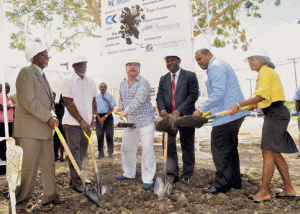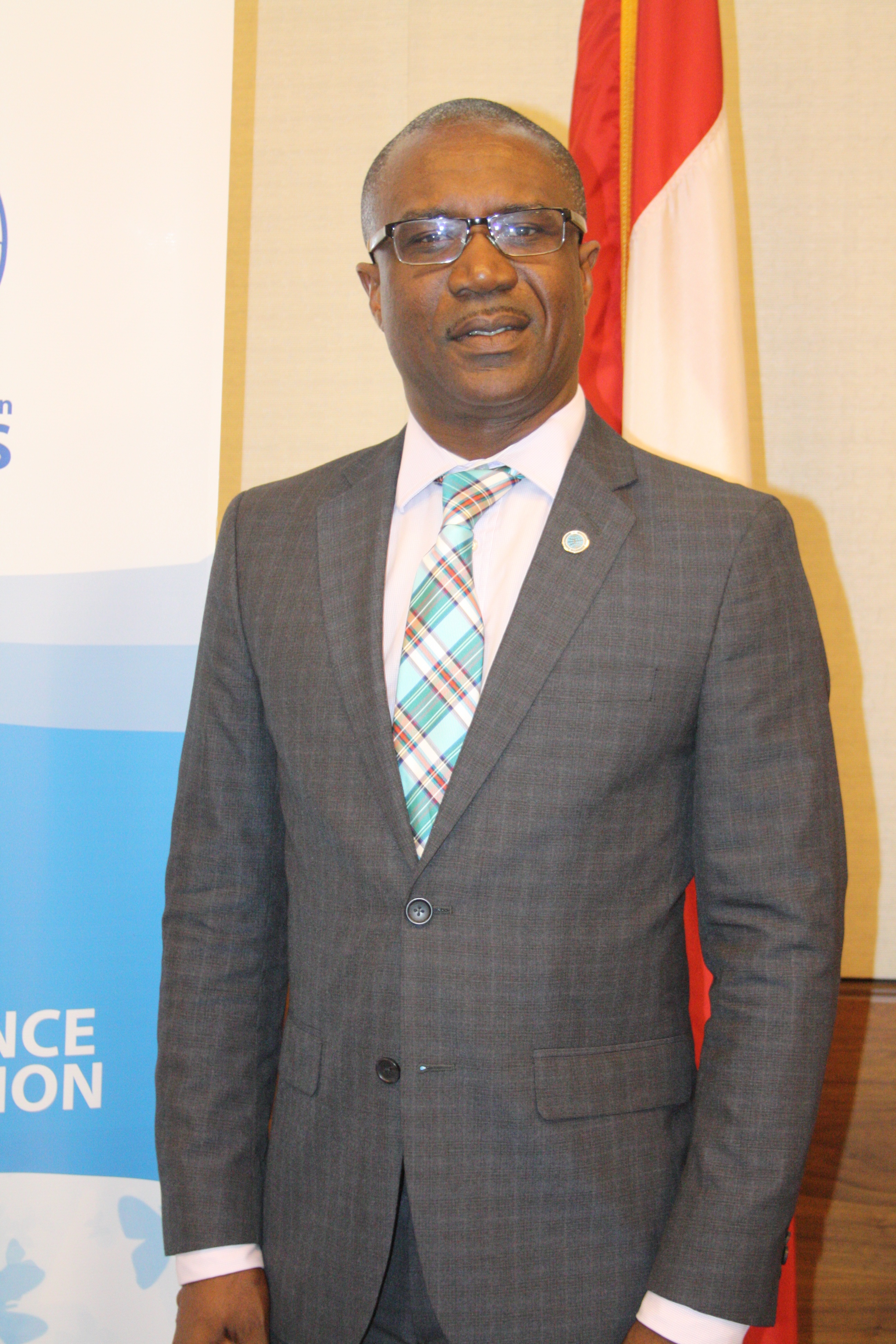Diabetes Care Facility Breaks Ground

THE new Diabetes Centre to be built in Warrens will bring significant savings for Government in the area of health care costs, as it will better help Government in managing worst-case diabetics, via the use of state-of-the-art technologies.
This was the information shared by Health Minister Donville Inniss yesterday, during a groundbreaking ceremony at the site of what is to become Barbados’ first Diabetes Centre a year from now.
“The Ministry of Health is fully committed to the successful establishment of the Diabetes Specialist Care Centre and is pleased to stand beside Medicor Foundation and the Barbados Diabetes Foundation as partners, after signing the letter of agreement in respect to the purchase of services, when this Centre becomes operational,” Inniss commented during his feature address.
“Through this arrangement, the Ministry of Health has guaranteed the referral of a minimal number of patients to you on an annual basis, and this certainly marks a departure from the norm, where we would usually issue a cheque...to the Diabetes Foundation on an annual basis. This time around, we are buying your services,” he said of the link with the non-governmental organisation.
The Minister explained that patients will be selected from among the most difficult to manage cases from the public, primary care system, specifically those with poor control, those with non-healing ulcers and those with some vascular disease challenges, as well as those with elements of early kidney failure.
In turn, he added, the Diabetes Centre will provide a structured programme which involves counselling, therapeutic education, quality care and management as well as behaviour modification interventions.
These services will be delivered using state-of-the-art technologies, taking into consideration new trends and modalities for the management of diabetes. It is expected that when these challenging cases are referred to the centre, they will be treated and, once stabilised, returned to the primary provider for continued management.
Inniss further stated that this project will lead to significant long-term savings for the health sector, in terms of delaying or avoiding the onset of severe complications of diabetes, since, at present, it is estimated that over 17 per cent of persons over the age of 40 in Barbados are living with the disease. Barbados spends in excess of $75 million a year on diabetic care, he revealed, and it costs approximately $5 000 a month per person to provide dialysis treatment at the Queen Elizabeth Hospital (QEH).
Another area of concern he pointed out is that of complications related to diabetes. A review of discharge data has revealed that an average of 190 diabetes-related amputations are performed on an annual basis at the QEH, while approximately 60 per cent of 2 800 patients for surgical admissions are for Non-communicable diseases (NCDs), with 8 per cent of these related to diabetic foot care.
Recent reports from the QEH’s chief executive’s office clearly identify that prolonged stay of patients with diabetic foot problems is an area of great concern for that institution, and according to Inniss, the average length of stay can vary from 14 to 21 days for some individuals, but can be much longer for others.
Noting that Government is therefore spending quite a few million at the QEH dealing with diabetics and diabetic foot care, he has noted that this is not sustainable and all efforts are thus being made to contain these costs and reduce them.
(This story by Regina Selman Moore was taken from the Barbados Advocate Newspaper 2/2/2012)


